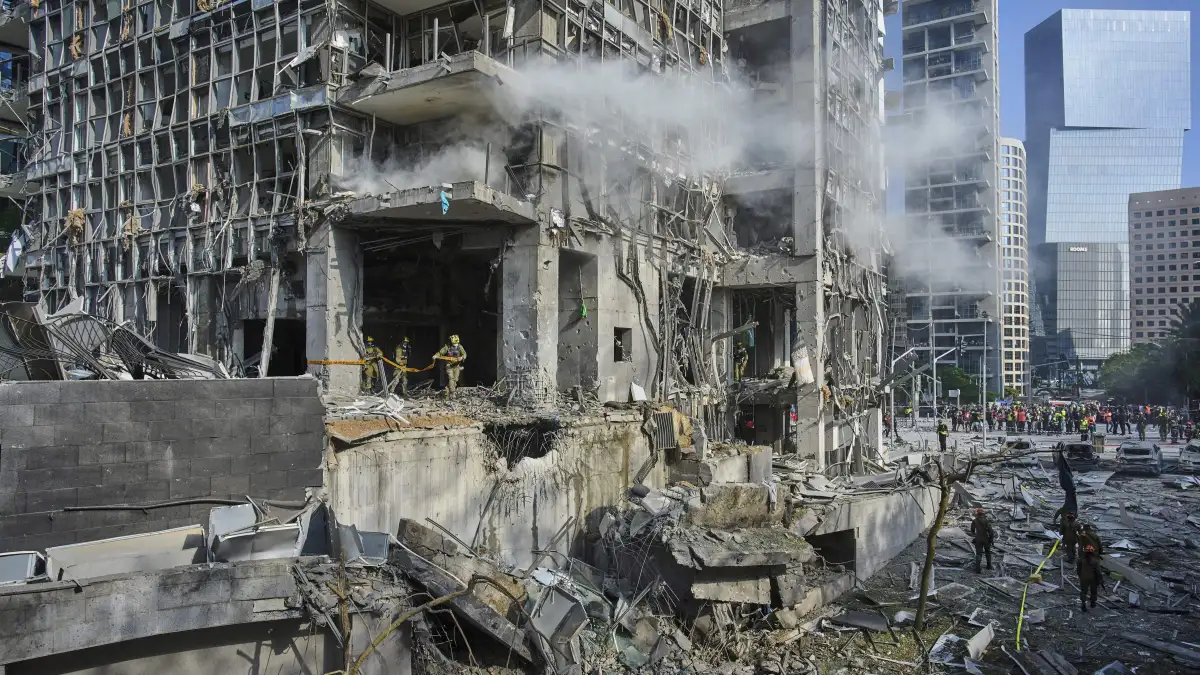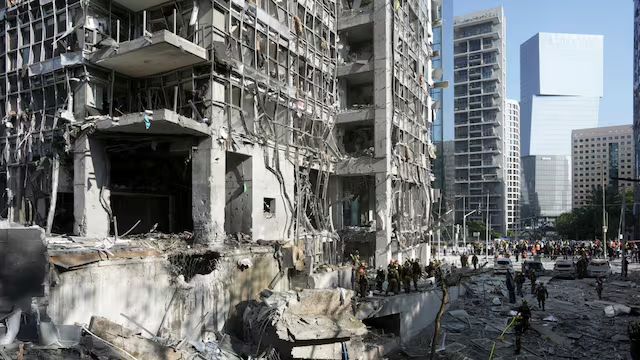Israel Responds by Bombing Nuclear Sites in Iran, Raising Global Alarm
An Iranian missile struck the Soroka Medical Center in Beersheba, Israel, injuring dozens and destroying critical infrastructure as part of a widespread attack during the ongoing conflict between Israel and Iran.

Iran claimed it had targeted a nearby military facility, but Israeli officials labelled the strike on the hospital “deliberate” and “criminal.” At least 271 people were injured in missile attacks across Israel, and 24 have been confirmed dead since hostilities resumed on June 13.
Israel Targets Iran’s Arak and Natanz Nuclear Facilities
Following the hospital strike, Israel launched major retaliatory strikes on Iranian nuclear infrastructure. The Israeli military confirmed attacks on the Arak heavy water reactor and the Natanz enrichment facility — both key components of Iran’s nuclear programme.
Israeli Prime Minister Benjamin Netanyahu warned, “We will remove the nuclear threat, just as I promised,” claiming that Israel had already destroyed over half of Iran’s missile launch sites. He also declared that no one, including Iran’s Supreme Leader Ayatollah Ali Khamenei, was immune from retaliation.
Extensive Damage at Soroka Hospital

BBC reporters described “extensive structural damage” at Soroka hospital, with fire ripping through several wards, collapsing ceilings, and shattering windows. Over 200 patients were evacuated to nearby medical centers, according to hospital CEO Prof. Shlomi Codish.
Nearby, a missile strike in Ramat Gan — east of Tel Aviv — injured 20 people as debris from a skyscraper and electrical infrastructure rained down on the district.
UN and WHO Condemn Attack on Medical Facility
The United Nations High Commissioner for Human Rights, Volker Türk, condemned the strike, calling it “appalling” and warning against “inflammatory rhetoric” from both nations.
The World Health Organization and the Red Cross both issued statements reminding parties that healthcare facilities must be protected under international law.
Iran Promises ‘Unlimited Response’
Iran denied directly targeting the hospital and said it was responding to Israel’s earlier assassination of several nuclear scientists and commanders. Iran’s armed forces declared their retaliation would have “no limits.”
The Human Rights Activists News Agency (HRANA) reported at least 639 deaths in Iran since the conflict began, although Iranian state media had last confirmed 224 casualties.
Trump Weighs US Involvement

The missile exchange comes as former President Donald Trump — currently seeking re-election — weighs whether the US will directly join Israel’s military efforts. According to White House sources, Trump will decide in the next two weeks. On Wednesday, he told reporters: “I may do it, I may not do it.”
Iran warned the US that any intervention would prompt retaliatory attacks against American assets in the region. Iran’s Deputy Foreign Minister Kazem Gharibabadi said Tehran would “teach aggressors a lesson.”
Global Concerns Mount Over Nuclear Escalation
The conflict has raised fears of a full-scale regional war, especially after Israel targeted nuclear facilities. While Israel claims it warned Iranian civilians in Arak and Khondab to evacuate before striking, the move is likely to further escalate tensions with the international community.
Iran filed a complaint with the UN nuclear watchdog, accusing Israel of violating international laws banning attacks on nuclear facilities.
See how the Iran-Israel war escalated from cyber threats to missiles









